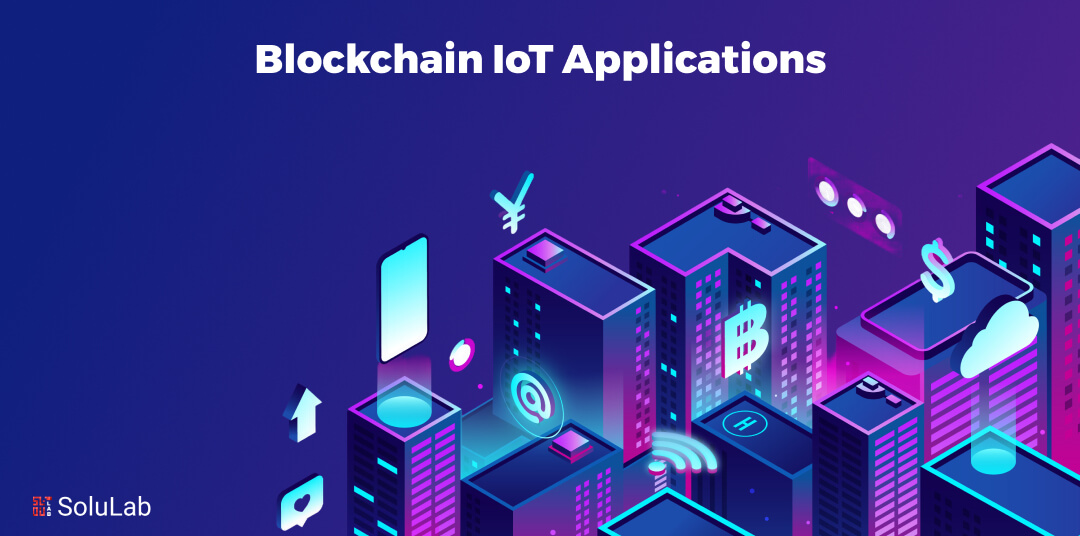
Effectively and securely managing the data is becoming a more difficult task, businesses that use traditional IoT systems face urgent problems such as data breaches, worries about data integrity, and lack of transparency. This is where blockchain technology comes in combined with IoT and provides businesses with different levels of security, trust, and responsibility.
The decentralized structure of blockchain guarantees that every piece of information stored within the system is irreversible, impenetrable, and verifiable. This guarantees the data’s accuracy and makes it instantly available to all parties involved. The system’s integrity would be protected as any attempt to change it could be immediately identifiable.
What is IoT with Blockchain?
More and more cybercriminals are curious about IoT devices now.
In fact, as per the Kaspersky Lab reports, there were three times as many malware samples attacking smart devices in 2018 when compared to 2017. Besides, the numbers in 2017 were ten times more than that in 2016.
Moreover, cracking of Telnet passwords remains one of the most popular attacks and infection vectors. In 2018, the number of Telnet password attacks was three times more than all other types combined. It is clear that this picture is not good for the future.
But, blockchain technology is here to save IoT today. It can solve many problems of IoT.
Advantages of IoT in Blockchain
Some of these benefits that prove that blockchain and IoT can work very well together are as follows:
1. Secure Software Updates
By guaranteeing tamper-proof software upgrades, blockchain technology improves the security of Internet of Things devices. By creating distinct, unchangeable virtual signatures for updating software files, cryptographic hash functions are essential to complete this procedure.
2. Automated Payments and Micropayments
Micropayments and smooth automated payments are made possible by the combination of blockchain technology and the Internet of Things. Devices within IoT systems can carry out transactions on their own without requiring human assistance by carefully utilizing smart contracts.
3. Rapid Transactions With Smart Contracts
Smart contracts are used by blockchain-powered IoT systems to expedite transaction procedures. The time needed for a typical transaction processing is greatly decreased by these self-executing contracts, which enforce certain terms automatically if the predetermined circumstances are met.
4. Reduced Costs
Blockchain enables interactions between people and trustless systems, eliminating the need for middlemen in IoT networks. Decentralization lowers operational and maintenance expenses by reducing reliance on central authorities like cloud service providers. Additionally, companies can reduce costs that are associated with external services by implementing more effective data-sharing and transaction models.
The Intersection of IoT and Blockchain
IoT and blockchain technologies work together to improve data automation, security, and transparency, which changes industries. Blockchain guarantees the validity, accountability, and reliability of this data, and IoT makes it easier to acquire, process, and analyze data in real-time across linked devices. These technologies work together to facilitate effective data sharing among consumers and suppliers in an ecosystem.
The objectives of Industry 4.0, including digital transformation and intelligent industry breakthroughs, are supported by this synergy. IoT sensors, for example, track production schedules and distribute this data to customers, suppliers, and delivery partners, ensuring well-informed choices. Similarly, to improve safety standards, pharmaceutical businesses employ blockchain to confirm raw material integrity and IoT to streamline compliance inspections.
What Are The Different IoT Blockchain Use Cases?
People are becoming tech-savvy day by day and that day is not far when everyone will own an IoT device. In fact, estimates state that the number of IoT devices will reach 30 billion by 2020. Also, the global market value of IoT will reach 7.1 trillion U.S. dollars by 2020.
So, why not include blockchain to make things better? Let us take a detailed look at some use cases of blockchain and IoT.
Smart cities and smart homes
Today, there are a plethora of household smart IoT devices that are able to completely automate our home lives. These devices include sensors, TVs, refrigerators, surveillance cameras, etc. However, only authorized people can control all the IoT devices of a smart home from a remote site.
Well, how does the information transfer take place across the network? The information from devices and sensors travels to a central server or gateway. This gateway connects to an enabled controlling device like a smartphone or computer. But, the main problem that arises here is maintaining the security of the information. Besides, this information can be prone to intrusions too. That is why blockchain technology is the best friend of IoT here. Let us take a look at how blockchain can assist IoT devices.
- Improved security
By recording communication and control information as transactions in the distributed ledger, one can improve the security of smart home systems. - Privacy and confidentiality
Blockchain can help in improving privacy through symmetric cryptography with algorithms like the AES. Also, it can improve the integrity of the transaction by hashing functions. Besides, time-stamping and proper encapsulation will ensure robust security too. - Verification
The distributed storage facility of blockchain will make it difficult to erase or corrupt any information. Further, any investigation can verify such information and check if someone is trying to tamper with the information. Also, one can reject any unauthorized transactions.
For instance, Waltonchain is an organization that is working towards a Smart City Revolution. It will soon be one of the top 10 projects by 2020. Actually, it is both a hardware (microchips) and a software (blockchain) project. It helps in offering numerous solutions for powering a smart city. Besides, it also helps in the management of supply chains with blockchain.
Supply Chain Management And Smart Contracts
Contractual negotiations are a necessity during the delivery of goods and services to retailers from the manufacturers. Besides, the shipping process begins after the signing of contracts. However, the shipping process is cumbersome and involves a lot of parties the local shipping agency, ports, customs officials, carriers, customs services, delivery agents, and the customers.
In fact, at each point, there is a whole sequence of messages and acknowledgments. These start from the manufacturers to the customer acknowledging the receipt of the shipment. Besides, current trading policies provide the details of the payment process to the supplier too. This is where blockchain technology and smart contracts can help during the chain of events. Let us see how.
- It helps to manage a supply chain in a smooth, verifiable, and secure manner.
- One can enter into or query the distributed ledger with all the transactions. Also, one can record and verify documents and events at each stage simultaneously.
Public Health Care
It is a fact that IoT has immense potential to improve the healthcare that we receive today. From health records to clinical trials, it has transformed and improved everything. In fact, these improvements are helping in saving time and removing the need for doctors. But, that is only one side of the whole scenario because blockchain is going to be a game changer for IoT.
- Counterfeit drugs
Blockchain and IoT can play a huge role in controlling the use of counterfeit drugs worldwide. Moreover, there can be a physical stamping of location with an identifier for each genuine drug that enters a blockchain ledger. If a party has to determine the authenticity of drugs, it can query the blockchain. Even details of manufacturing can be easily found. Thus, one can track and eliminate all forged drugs.
- Electronic medical records
Blockchain will allow people to maintain their health records. Also, doctors can access them anytime and anywhere. Besides, IoT devices will enable real-time monitoring of health easily. Such devices can record data in our medical records too. Then doctors will be able to access large amounts of data about a patient’s health.
For instance, if a patient is overdoing his exercise, smart devices can record it in their medical records. Further, such devices can also warn them in the form of a beeping noise.
- Smartwatches and other devices
IoT devices can monitor heart rates when people go jogging. Moreover, they are a boon for patients with heart conditions. This is because doctors can use a smart monitoring device to record their heart health and blood pressure.
One popular blockchain IoT use case for healthcare is the Mediledger project. It is an open and decentralized network for the pharma supply chain. Some of its advantages include patient safety, drug supply security, and compliance with track and trace regulations.
Public safety
Natural disasters or man-made disasters like the collapse of a large building, and terrorist attacks can be a threat to public safety. They have the potential to cause major injury and loss of life. Also, they lead to societal disruptions and property damage.
Moreover, the government normally tackles such critical incidents with fire, police, and health services. Besides, they communicate over networks to record communications. These recordings can work as evidence for people who seek compensation for damage they suffered in such accidents.
Also, the media always helps in protecting the public interest against any malpractice by creating awareness. This is where the blockchain can assist in recording digital communications. Actually, they can also encode the communication details as entries in the distributed ledger. This will ensure that all communication records are authentic.
Moreover, mechanisms like the Bitcoin wallet can help in querying the records. Thus, their access to the communications will be authentic and documented. So, the media, litigants, and defendants will always be able to access verified facts.
Impact of Artificial Intelligence on Future Trends
In the future, developments in AI will improve the IoT and Blockchain integration even more. Blockchains allow for the uploading of AI models and algorithms, guaranteeing accountability and traceability. This collaboration will spur creativity in some sectors. For example, by confirming the validity of every batch, blockchain can assist the pharmaceutical business in detecting counterfeit medications, enhancing patient trust and security. AI can also forecast market demands, optimize supply chain operations, and guarantee regulatory compliance, all of which increase the process’s dependability and efficiency.
The Final Word
To sum up, blockchain and IoT are a great combination of technologies. The above use cases show a clear picture of how we can transform everything with blockchain and IoT. But, those aren’t the only ones.
The combination of IoT and distributed ledger technology provides faster transactions. Also, the data transactions using smart contracts make the process more efficient. Further, the ability to make autonomous decisions by devices is also another advantage. From supply chain management to public safety, the blockchain IoT duo works for the best. So, what do you think about blockchain IoT applications? Contact SoluLab to indulge in it for speedy business transactions and improved performance.




